Find Help
More Items From Ergsy search
-
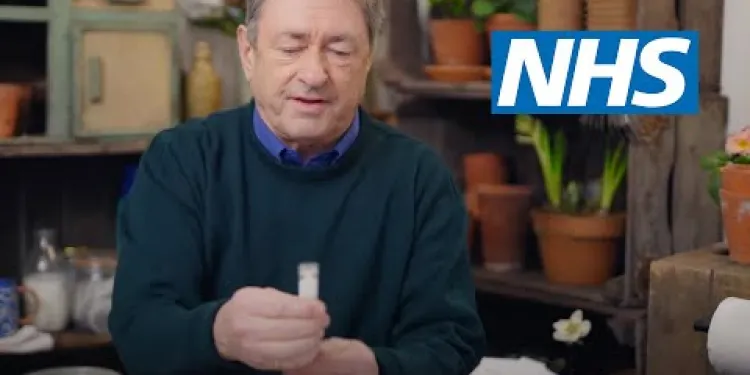
Bowel cancer screening: Alan Titchmarsh and Tommy Walsh | NHS
Relevance: 100%
-

How does increased screening impact bowel cancer statistics?
Relevance: 99%
-
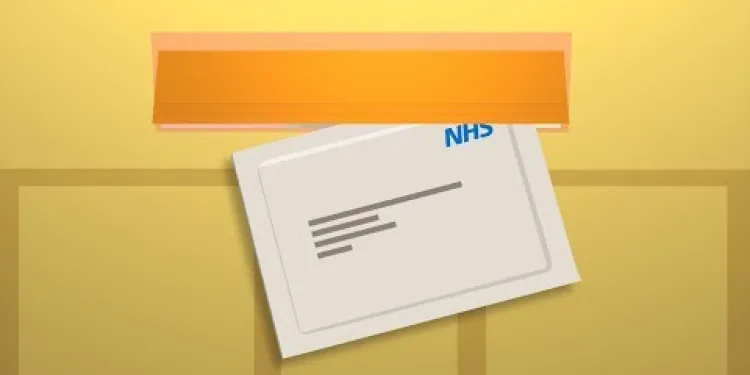
How to do the FIT bowel cancer screening test | Cancer Research UK
Relevance: 98%
-

What is Bowel Cancer?
Relevance: 92%
-

How common is bowel cancer?
Relevance: 91%
-

Can bowel cancer be prevented?
Relevance: 91%
-

Why is there a surge in bowel cancer?
Relevance: 90%
-

How is bowel cancer diagnosed?
Relevance: 88%
-
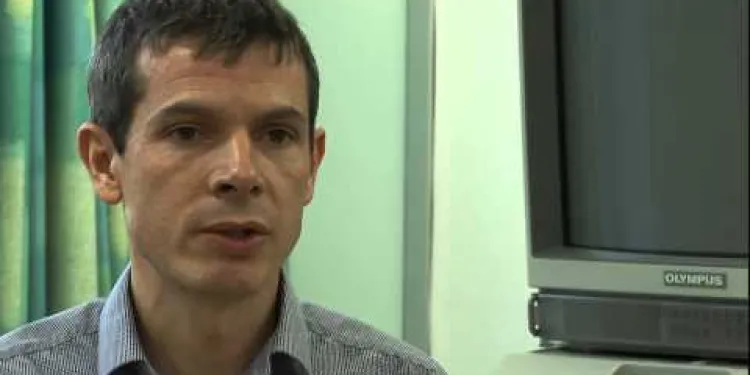
Bowel cancer - Symptoms and signs to look out for
Relevance: 87%
-
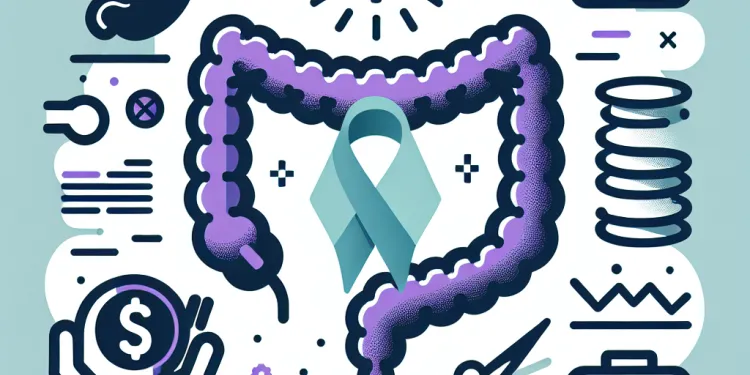
What is the survival rate for bowel cancer?
Relevance: 86%
-

Are younger people being diagnosed with bowel cancer more frequently?
Relevance: 83%
-
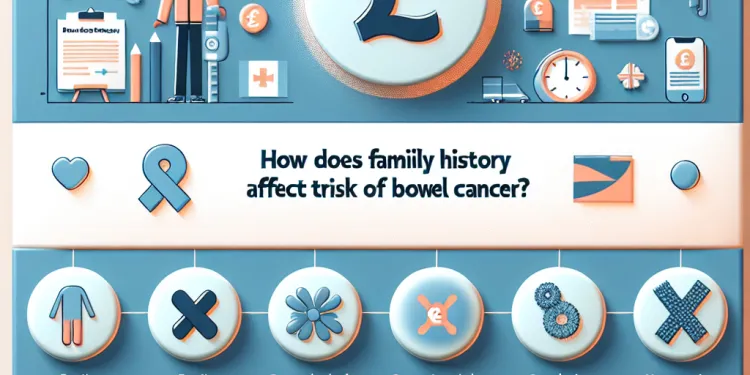
How does family history affect the risk of bowel cancer?
Relevance: 83%
-
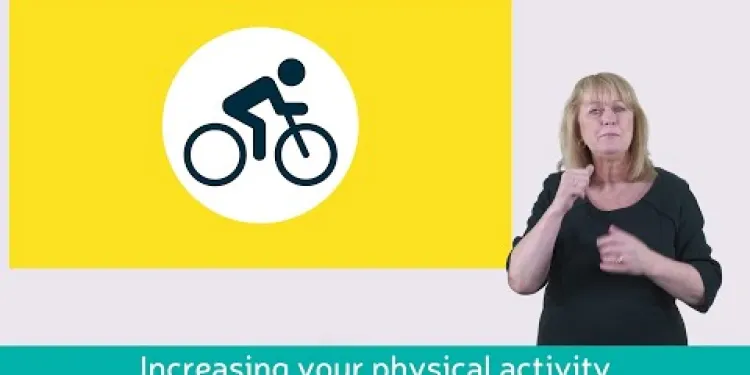
Learn about bowel cancer (British Sign Language version)
Relevance: 82%
-

What are the recommendations for colorectal cancer screening?
Relevance: 82%
-
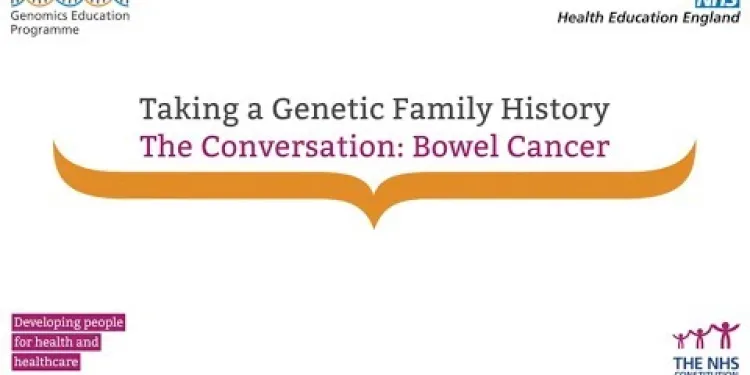
Taking a Genetic Family History - The Conversation (Bowel Cancer)
Relevance: 82%
-
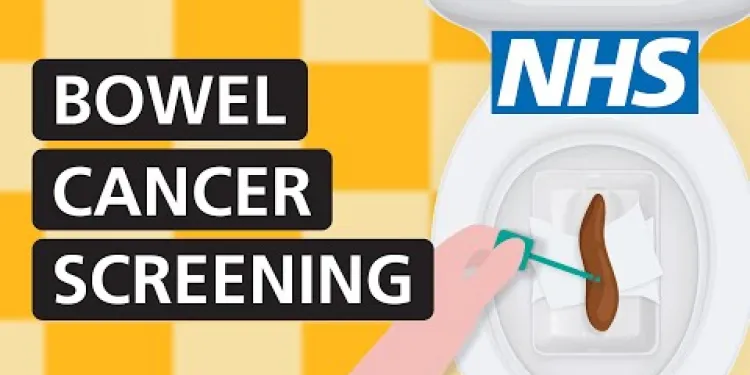
How to use the bowel cancer screening FIT kit | NHS
Relevance: 81%
-

What factors are contributing to the increase in bowel cancer cases?
Relevance: 81%
-

What is cancer screening?
Relevance: 80%
-
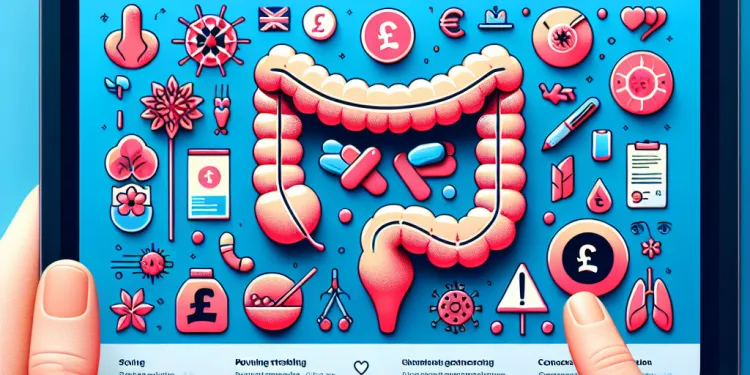
What are the risk factors for bowel cancer?
Relevance: 80%
-
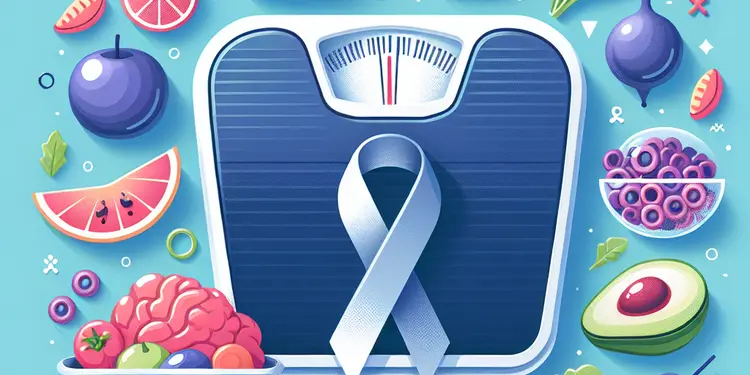
How does obesity affect bowel cancer rates?
Relevance: 79%
-

Is diet linked to the rise in bowel cancer?
Relevance: 78%
-

Can bowel cancer spread to other parts of the body?
Relevance: 78%
-

What lifestyle changes can help lower the risk of bowel cancer?
Relevance: 78%
-
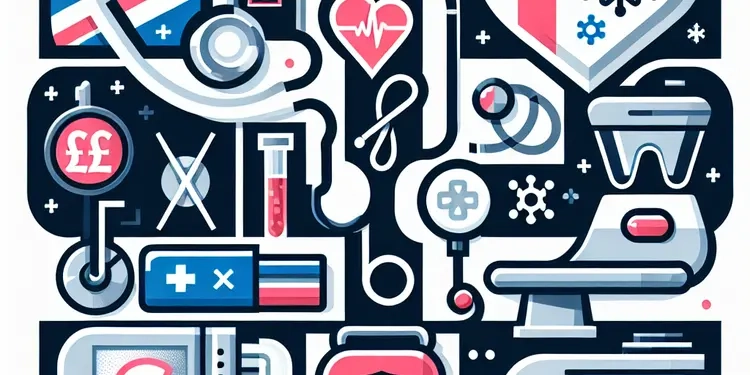
What kinds of cancer screening are available?
Relevance: 77%
-

Can lifestyle changes help reduce bowel cancer risk?
Relevance: 76%
-

Bowel Cancer
Relevance: 76%
-
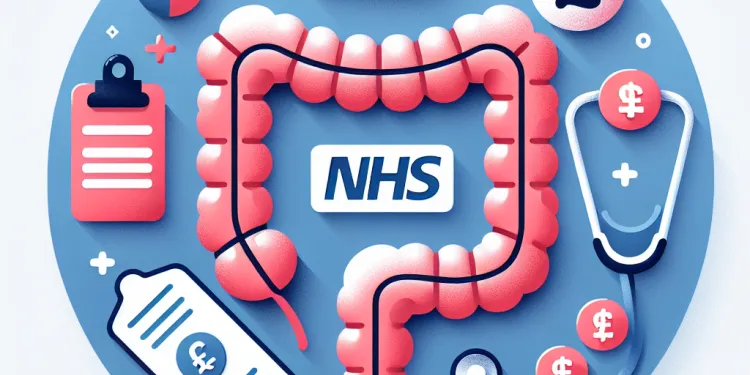
What treatment options are available for bowel cancer?
Relevance: 75%
-

How is the stage of bowel cancer determined?
Relevance: 71%
-

AI Breast Cancer Screening in the UK
Relevance: 71%
-

Are there specific benefits of exercise for bowel cancer survivors?
Relevance: 70%
-
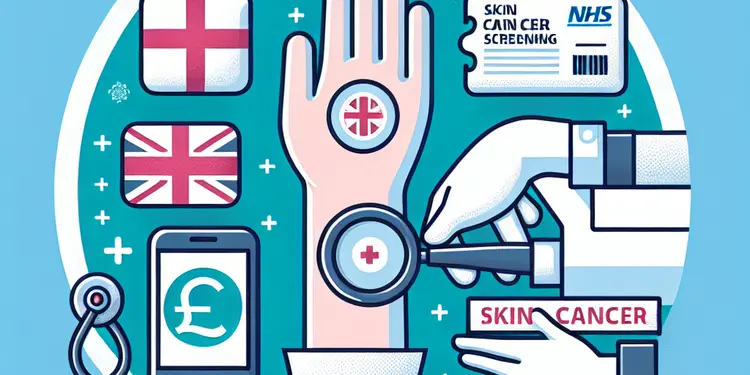
What is a skin cancer screening?
Relevance: 69%
-

How does exercise impact bowel cancer progression?
Relevance: 69%
-

What are the side effects of bowel cancer treatment?
Relevance: 69%
-

What support is available for individuals diagnosed with bowel cancer?
Relevance: 69%
-
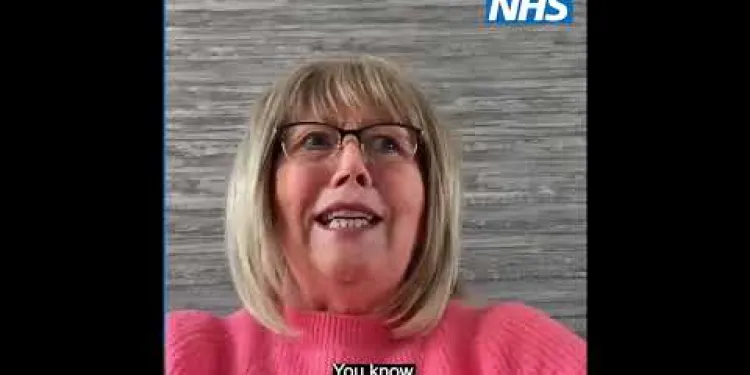
NHS breast cancer screening
Relevance: 68%
-
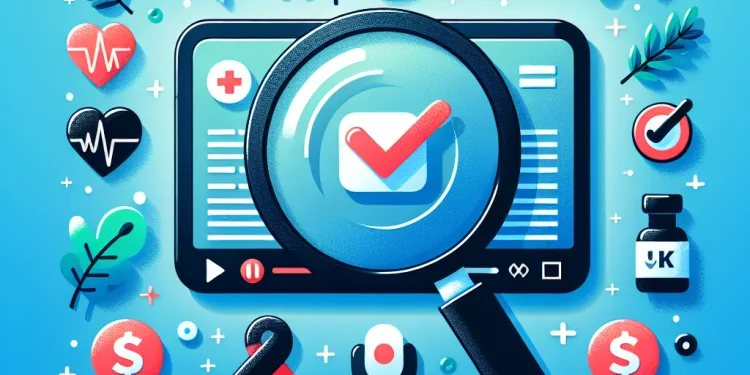
Health Screenings You Should Know About
Relevance: 67%
-

What types of exercise are beneficial for bowel cancer patients?
Relevance: 67%
-

Can exercise help slow down the progression of bowel cancer?
Relevance: 67%
-

Can exercise help slow down the progression of bowel cancer?
Relevance: 67%
-

What role does diet play in the risk of developing bowel cancer?
Relevance: 67%
Bowel cancer screening in the UK
Bowel cancer screening in the UK is an essential part of the National Health Service's (NHS) efforts to detect and treat bowel cancer early, when it is more likely to be curable. The NHS offers bowel cancer screening to eligible individuals aged 60 to 74 in England, Wales, and Northern Ireland, and up to age 75 in Scotland.
The primary screening test used is the fecal immunochemical test (FIT). This test detects hidden blood in the stool, which can be an early sign of bowel cancer. Individuals in the eligible age group are sent a home testing kit every two years, which they can use to collect a small stool sample and send it to a laboratory for analysis.
If the FIT test results are abnormal, indicating the presence of blood in the stool, individuals are referred for further investigation, usually a colonoscopy, to examine the bowel and identify any abnormalities, such as polyps or tumors.
Regular screening can help detect bowel cancer at an early stage, often before symptoms develop, which can significantly improve the chances of successful treatment and survival. It's important for eligible individuals to participate in bowel cancer screening when invited by the NHS. Additionally, individuals experiencing symptoms such as persistent changes in bowel habits, blood in the stool, abdominal pain, or unexplained weight loss should seek medical advice promptly, regardless of their screening status.
Bowel Cancer Screening: Alan Titchmarsh and Tommy Walsh | NHS
Introduction to Bowel Cancer Screening
Bowel cancer is one of the most common types of cancer in the UK, but early detection through screening can significantly improve the chances of successful treatment. The National Health Service (NHS) offers a bowel cancer screening program designed to detect early signs of the disease in people with no symptoms, primarily targeting individuals aged 60 to 74 years old. The importance of this program is highlighted by numerous public figures, including Alan Titchmarsh and Tommy Walsh, who have joined efforts to raise awareness.Role of Alan Titchmarsh and Tommy Walsh in Raising Awareness
Alan Titchmarsh and Tommy Walsh, beloved television personalities known for their work in gardening and home improvement, have become prominent advocates for bowel cancer screening. Through public service announcements, interviews, and social media campaigns, they have shared personal stories and stressed the importance of participating in the NHS screening program. Their involvement aims to reduce stigma, encourage open conversations about bowel health, and motivate individuals to take proactive steps toward early detection.How the Bowel Cancer Screening Program Works
The NHS bowel cancer screening program typically involves a home test kit known as the Faecal Immunochemical Test (FIT). This easy-to-use kit is sent every two years to individuals within the target age range. The test detects small amounts of blood in the stool, which can be an early indication of bowel cancer. If the test results are positive, further investigations, such as a colonoscopy, are advised to confirm the presence of cancer or polyps.Importance of Participation
Participation in the bowel cancer screening program is crucial for early diagnosis and treatment. Early-stage bowel cancer might not exhibit noticeable symptoms, thus screening can help identify and address the disease before it advances. The involvement of influential figures like Alan Titchmarsh and Tommy Walsh helps to demystify the process and encourages more people to participate without fear or hesitation.Conclusion
Bowel cancer screening is an essential public health measure provided by the NHS to combat one of the most common cancers in the UK. With the support of high-profile advocates like Alan Titchmarsh and Tommy Walsh, the program continues to gain visibility and acceptance, ultimately saving lives through early detection and treatment. If you are eligible, it is vital to make use of the screening services and encourage loved ones to do the same.For more information, visit the official NHS website on bowel cancer screening.
Bowel Cancer Checks in the UK
Bowel cancer checks are important for finding bowel cancer early in the UK. The National Health Service (NHS) helps people get checked so they can be treated sooner. This is important because it's easier to cure bowel cancer when it's caught early. The NHS offers these checks to people aged 60 to 74 in England, Wales, and Northern Ireland. In Scotland, they offer the checks up to age 75.
The main test used is called the fecal immunochemical test (FIT). This test looks for blood in the poo. Finding blood early can be a sign of bowel cancer. People who are the right age get a home testing kit every two years. They use this kit to take a small sample of their poo and send it to a lab for checking.
If the test finds blood in the poo, the person may need more tests. The main test they do next is called a colonoscopy. This lets doctors look closely inside the bowel to find any problems, like small growths or tumors.
Getting regular checks can find bowel cancer early, often before you feel sick. Finding it early gives you a much better chance of getting better. People who are asked to get checked by the NHS should say yes. Also, if anyone has symptoms like changes in how they poop, blood in their poo, tummy pain, or lose weight without trying, they should talk to a doctor right away. This is important even if they are getting regular checks.
It's helpful to keep notes of any symptoms and bring them to your doctor's visit. You can also ask someone you trust to go with you to appointments for support.
Bowel Cancer Checks: Alan Titchmarsh and Tommy Walsh | NHS
What is Bowel Cancer Screening?
Bowel cancer is a common type of cancer in the UK. Finding it early through screening can help treat it better. The NHS has a screening program to spot early signs of bowel cancer. It is for people who are 60 to 74 years old. Famous people like Alan Titchmarsh and Tommy Walsh talk about how important this is.How Alan Titchmarsh and Tommy Walsh Help
Alan Titchmarsh and Tommy Walsh are TV stars. They are known for gardening and fixing homes. They talk about bowel cancer screening on TV, in interviews, and online. They share their stories to help people feel better about getting checked. They want people to talk about bowel health and go for screening.How Bowel Cancer Screening Works
The NHS sends a test kit to people every two years. This is called the FIT kit. It is easy to use at home. The kit checks for tiny amounts of blood in poo. This can be a sign of bowel cancer. If the test finds blood, more tests like a colonoscopy are done to check for cancer.Why Screening is Important
Screening helps find bowel cancer early. Early cancer might not show signs, so screening is important. Famous people talking about it makes it less scary. It can help people join the program without worry.Why You Should Get Screened
Bowel cancer screening is important. The NHS offers this to help find cancer early. Alan Titchmarsh and Tommy Walsh support this, so more people get checked. If you can get screened, do it. Tell your family and friends too.To learn more, visit the official NHS website on bowel cancer screening.
Frequently Asked Questions
What is bowel cancer screening?
Bowel cancer screening is a process that looks for early signs of bowel cancer or non-cancerous growths called polyps. Detecting these early can make the disease easier to treat and improve outcomes.
Who is eligible for bowel cancer screening in the UK?
In the UK, bowel cancer screening is offered to individuals aged 60-74. If you are 75 or over, you can still request a screening kit.
How is the bowel cancer screening test done?
The screening test involves collecting a small sample of your stool using a home testing kit provided by the NHS. You then send the sample to a lab for analysis.
How often should I take the bowel cancer screening test?
You should take the bowel cancer screening test every 2 years if you are within the eligible age range of 60-74.
Are there any symptoms that should prompt me to request a screening?
Yes, symptoms like persistent changes in bowel habits, blood in the stool, unexplained weight loss, and abdominal pain should prompt you to contact your GP, even if you’re not yet due or eligible for screening.
What do I do if my screening test is positive?
If your screening test is positive, you will be invited for further tests, which may include a colonoscopy to look inside your bowel and determine the cause of the positive result.
Is bowel cancer screening effective?
Yes, bowel cancer screening is effective at detecting early signs of cancer and pre-cancerous conditions, which can significantly improve treatment success rates.
Can I opt out of bowel cancer screening?
Yes, you can choose to opt out of bowel cancer screening. If you wish to do so, contact the NHS bowel cancer screening helpline.
Is the bowel cancer screening test painful?
No, the bowel cancer screening test is not painful. It simply involves taking a small stool sample at home.
How long does it take to get the results of the screening test?
It usually takes about two weeks to receive the results of the bowel cancer screening test by post.
Can lifestyle changes reduce my risk of bowel cancer?
Yes, maintaining a healthy diet, exercising regularly, limiting alcohol consumption, and not smoking can help reduce the risk of developing bowel cancer.
What should I do if I have a family history of bowel cancer?
If you have a family history of bowel cancer, inform your GP. They may suggest starting screening earlier or perform additional tests.
Can bowel cancer be treated successfully if caught early?
Yes, bowel cancer is highly treatable if detected early. Treatments may include surgery, chemotherapy, and radiation therapy.
Is bowel cancer screening free on the NHS?
Yes, bowel cancer screening is provided free of charge by the NHS for eligible individuals.
Can I request a bowel cancer screening test if I am younger than 60?
If you are younger than 60 and have symptoms or a high risk of bowel cancer, speak to your GP. They can refer you for appropriate tests.
What is bowel cancer screening?
Bowel cancer screening means looking inside your tummy to check for signs of cancer. It helps doctors find cancer early. Here is how it works: - You might be asked to do a simple test at home. - You use a special kit to collect a small sample of your poo. - Send it back in the envelope. Why is it important? - It helps find cancer before you feel sick, which makes it easier to treat. Tips for help: - Ask someone you trust to help you with the kit. - Look at pictures or videos that show how to use the kit. If you have questions, talk to your doctor.Bowel cancer screening is a check-up to find signs of bowel cancer or small lumps called polyps. Finding these early can make treatment easier and help people get better.
Who can get tested for bowel cancer in the UK?
People in the UK can have a test to check for bowel cancer. This test is for people who:
- Are aged 60 to 74 years old in England, Wales, and Northern Ireland.
- Are aged 50 to 74 years old in Scotland.
- Have a GP (doctor) and live in the UK.
It's important to get screened to stay healthy. If you need help, ask a doctor or a nurse. Family or friends can also help you understand the test.
In the UK, if you are between 60 and 74 years old, you can get checked for bowel cancer. This is called screening.
If you are 75 or older, you can still ask to get a screening kit.
How do you do the test for bowel cancer?
Doing a test for bowel cancer is simple. You need to collect a small sample of your poo. This helps doctors see if there are any problems in your bowel.
Here are some tips to do the test easily:
- Ask someone you trust for help if you need it.
- You can use a small stick or kit to take a little bit of your poo.
- Make sure to read the instructions carefully before you start.
If you find it hard to do, there are tools that can help:
- Talk to a doctor or nurse. They can explain things step-by-step.
- Watch a video that shows how to do the test.
- Use pictures or drawings to understand better.
The test checks your poop. You get a kit from the NHS to use at home. You take a little bit of your poop and send it to a lab to check it.
You can ask someone you trust to help you with the kit. Keep the instructions close so you can follow them step by step.
How often should I do the bowel cancer test?
If you are between 60 and 74 years old, you should do a test for bowel cancer every 2 years.
What signs mean I should ask for a check-up?
If you notice things like your toilet habits changing, blood in your poo, losing weight without trying, or a sore tummy, you should talk to your doctor. It doesn’t matter if it’s not time for your health check-up yet.
What should I do if my test says I might be sick?
If your first test shows something might be wrong, doctors will ask you to have more tests. This might be a colonoscopy, where they look inside your belly to see why the first test was positive.
Does testing for bowel cancer work well?
Yes, bowel cancer tests are good at finding early signs of cancer and signs that might turn into cancer. Catching these early can help doctors treat it better.
Can I say no to bowel cancer tests?
You can say no to bowel cancer checks if you want.
If you don’t want these checks, call the NHS bowel cancer screening helpline.
Does the bowel cancer test hurt?
No, the bowel cancer test does not hurt. You just need to take a small poop sample at home.
When will I get my test results?
After you take the test, you will have to wait for the results. Here is what you can do while you wait:
- Ask the doctor how long it will take to get the results.
- Write down the date you should get the results.
- You can talk to someone if you feel worried while you wait.
You will usually get the bowel cancer test results in the mail in about two weeks.
Can changing how I live make me less likely to get bowel cancer?
Eating good food, playing and moving your body a lot, drinking little alcohol, and not smoking can help you stay healthy and lower the chances of getting bowel cancer.
What can I do if my family had bowel cancer?
If people in your family have had bowel cancer, tell your doctor. They might want you to start getting checked for it sooner and do extra tests.
Can doctors help if bowel cancer is found early?
Yes, there is a good chance to treat bowel cancer if doctors find it early. You might need surgery, medicine (called chemotherapy), or special rays (called radiation therapy).
Is bowel cancer check free with the NHS?
If you live in the UK, you can get a free test for bowel cancer with the NHS.
Here are some tools that might help:
- Ask a family member or friend to help read the letter from the NHS.
- Use a computer or tablet with a reading app that reads out loud.
- Watch a video about bowel cancer tests to see how it works.
It is good to get the test to help stay healthy.
Yes, the NHS gives free bowel cancer tests to people who can have them.
Can I ask for a bowel cancer test if I am under 60?
If you are under 60 and think you might have bowel cancer, talk to your doctor. They can help you get the right tests.
Useful Links
This website offers general information and is not a substitute for professional advice.
Always seek guidance from qualified professionals.
If you have any medical concerns or need urgent help, contact a healthcare professional or emergency services immediately.
- Ergsy carfully checks the information in the videos we provide here.
- Videos shown by Youtube after a video has completed, have NOT been reviewed by ERGSY.
- To view, click the arrow in centre of video.
- Most of the videos you find here will have subtitles and/or closed captions available.
- You may need to turn these on, and choose your preferred language.
- Go to the video you'd like to watch.
- If closed captions (CC) are available, settings will be visible on the bottom right of the video player.
- To turn on Captions, click settings .
- To turn off Captions, click settings again.
More Items From Ergsy search
-

Bowel cancer screening: Alan Titchmarsh and Tommy Walsh | NHS
Relevance: 100%
-

How does increased screening impact bowel cancer statistics?
Relevance: 99%
-

How to do the FIT bowel cancer screening test | Cancer Research UK
Relevance: 98%
-

What is Bowel Cancer?
Relevance: 92%
-

How common is bowel cancer?
Relevance: 91%
-

Can bowel cancer be prevented?
Relevance: 91%
-

Why is there a surge in bowel cancer?
Relevance: 90%
-

How is bowel cancer diagnosed?
Relevance: 88%
-

Bowel cancer - Symptoms and signs to look out for
Relevance: 87%
-

What is the survival rate for bowel cancer?
Relevance: 86%
-

Are younger people being diagnosed with bowel cancer more frequently?
Relevance: 83%
-

How does family history affect the risk of bowel cancer?
Relevance: 83%
-

Learn about bowel cancer (British Sign Language version)
Relevance: 82%
-

What are the recommendations for colorectal cancer screening?
Relevance: 82%
-

Taking a Genetic Family History - The Conversation (Bowel Cancer)
Relevance: 82%
-

How to use the bowel cancer screening FIT kit | NHS
Relevance: 81%
-

What factors are contributing to the increase in bowel cancer cases?
Relevance: 81%
-

What is cancer screening?
Relevance: 80%
-

What are the risk factors for bowel cancer?
Relevance: 80%
-

How does obesity affect bowel cancer rates?
Relevance: 79%
-

Is diet linked to the rise in bowel cancer?
Relevance: 78%
-

Can bowel cancer spread to other parts of the body?
Relevance: 78%
-

What lifestyle changes can help lower the risk of bowel cancer?
Relevance: 78%
-

What kinds of cancer screening are available?
Relevance: 77%
-

Can lifestyle changes help reduce bowel cancer risk?
Relevance: 76%
-

Bowel Cancer
Relevance: 76%
-

What treatment options are available for bowel cancer?
Relevance: 75%
-

How is the stage of bowel cancer determined?
Relevance: 71%
-

AI Breast Cancer Screening in the UK
Relevance: 71%
-

Are there specific benefits of exercise for bowel cancer survivors?
Relevance: 70%
-

What is a skin cancer screening?
Relevance: 69%
-

How does exercise impact bowel cancer progression?
Relevance: 69%
-

What are the side effects of bowel cancer treatment?
Relevance: 69%
-

What support is available for individuals diagnosed with bowel cancer?
Relevance: 69%
-

NHS breast cancer screening
Relevance: 68%
-

Health Screenings You Should Know About
Relevance: 67%
-

What types of exercise are beneficial for bowel cancer patients?
Relevance: 67%
-

Can exercise help slow down the progression of bowel cancer?
Relevance: 67%
-

Can exercise help slow down the progression of bowel cancer?
Relevance: 67%
-

What role does diet play in the risk of developing bowel cancer?
Relevance: 67%


